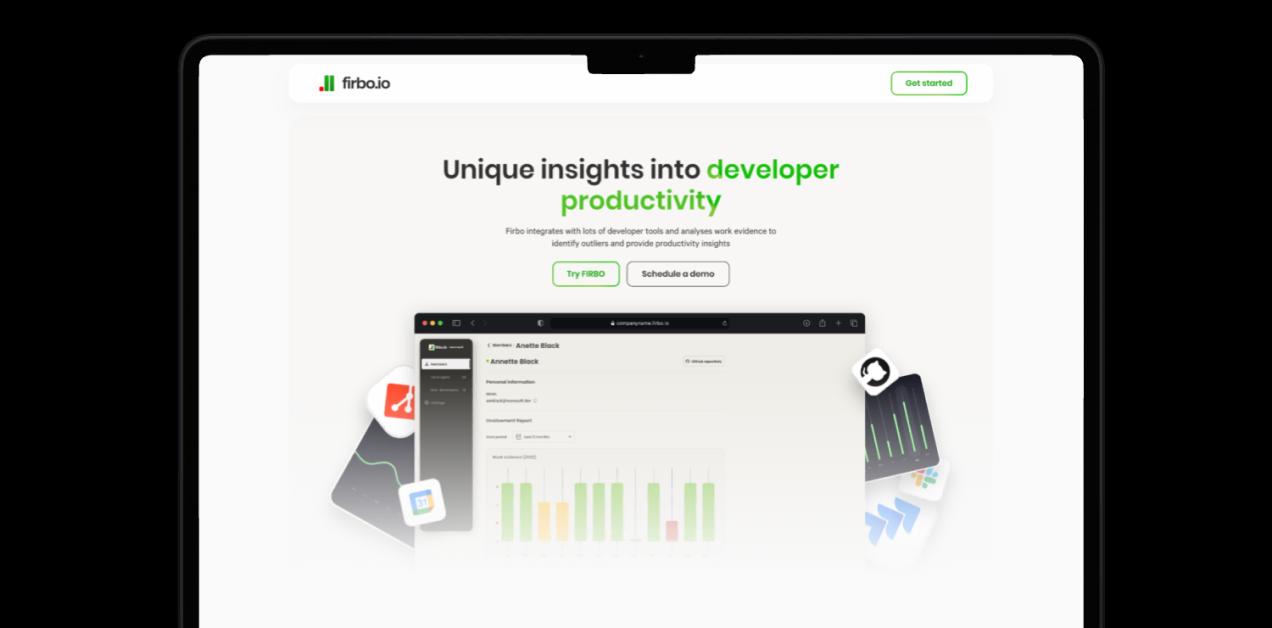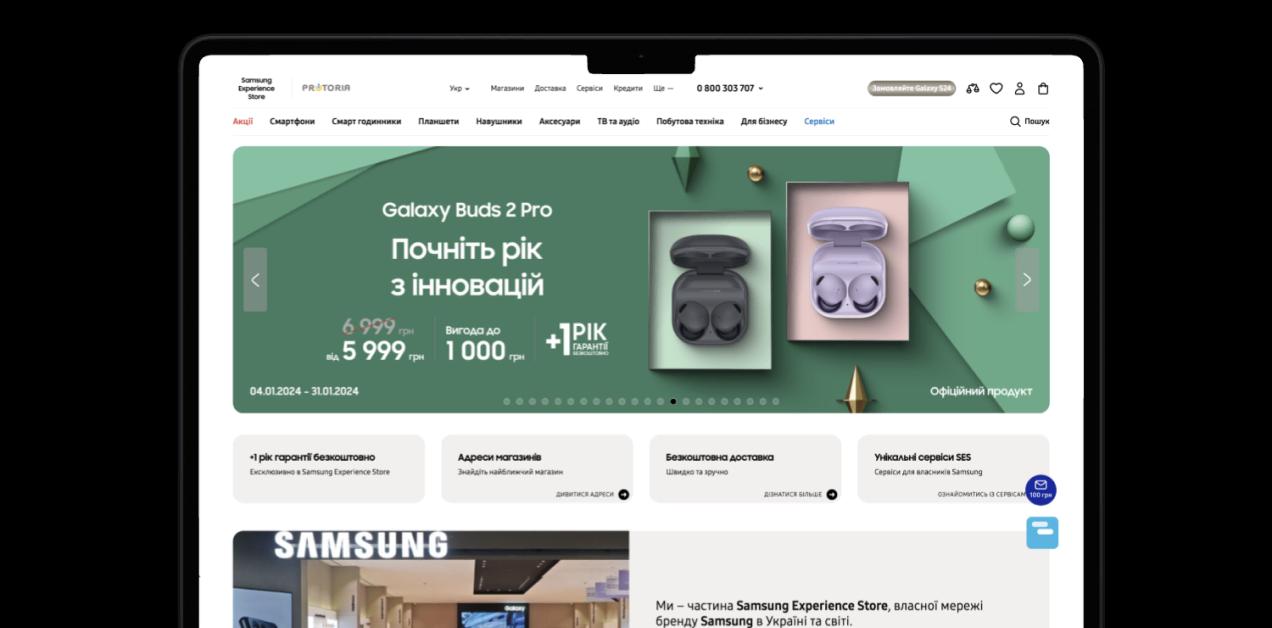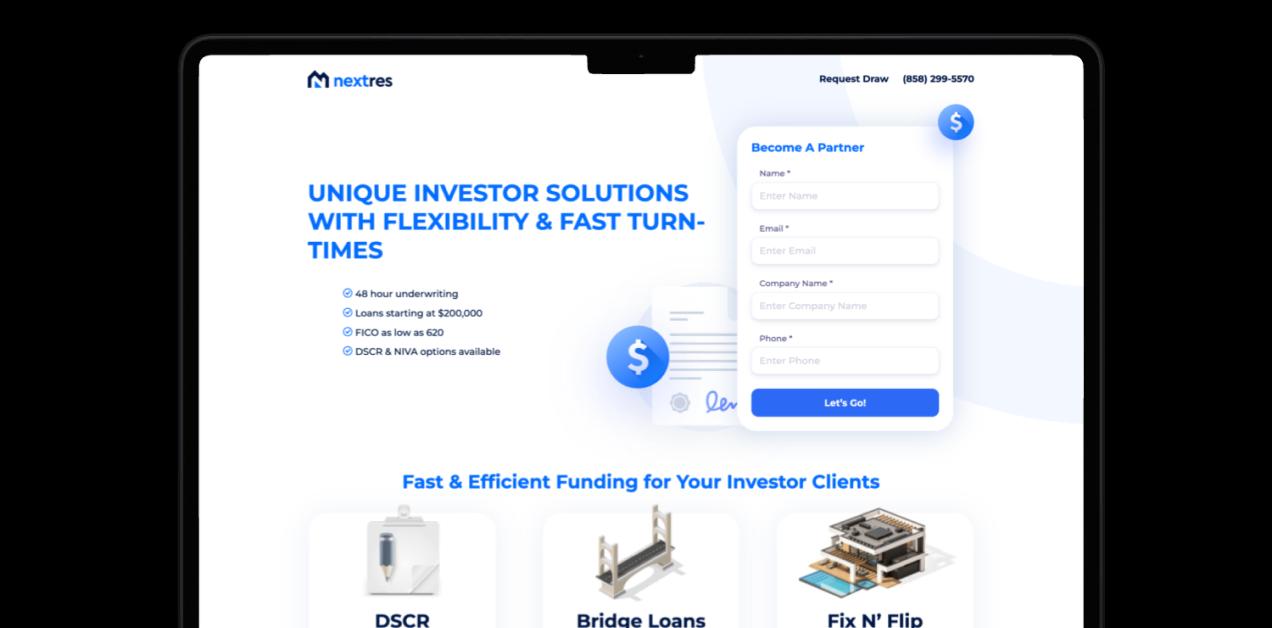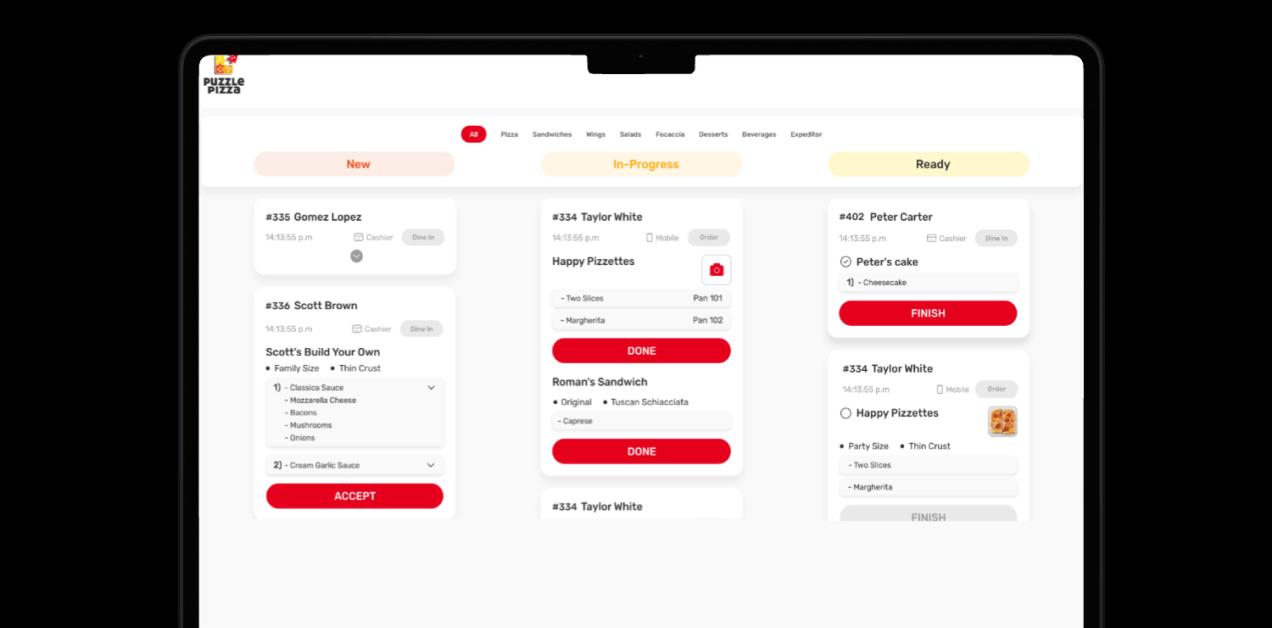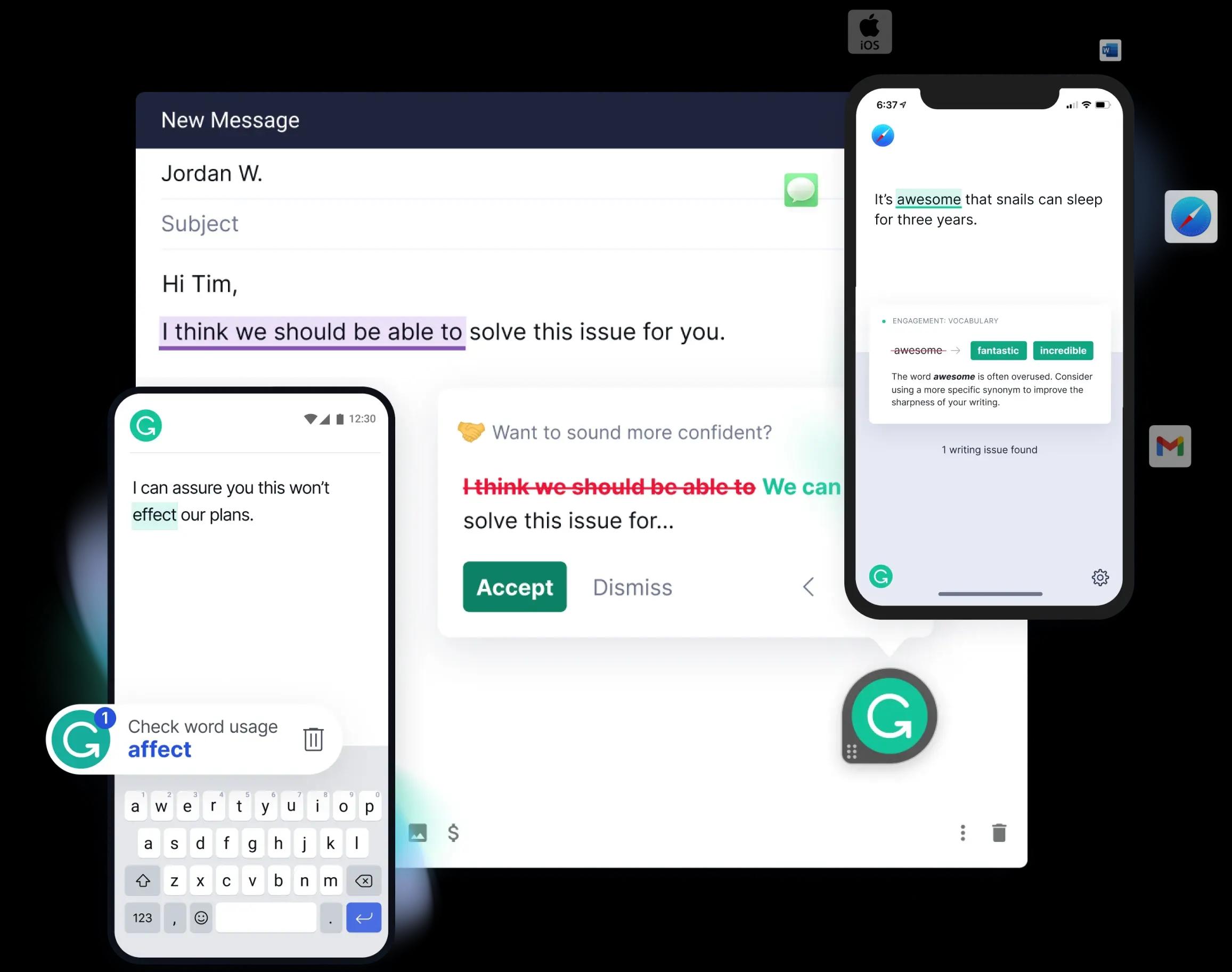
 Building Smart Keyboard & Test Automation Suite for the best writing assistant
Building Smart Keyboard & Test Automation Suite for the best writing assistant
Grammarly set a goal of developing Android Keyboard with remarkable user experience and create testing infrastructure for test coverage of their MacOS / iOS solutions. Client profile
Client profile
Client profile
ClientGrammarly
IndustryConsumer Apps, AI
About clientSecuring a $90 million funding round in 2019 elevated Grammarly to unicorn status with a valuation surpassing $1 billion. Today Grammarly is #1 writing assistant app in the world. The companyʼs suite of products, including grammar checkers, keyboards, and business solutions, serves millions of users worldwide.
Challenge
- Grammarly has a computationally intensive product that needs to stay extremely responsive. Keyboard had to achieve seamless and responsive experience expected by users.
- Mobile keyboard had to work perfectly and be compatible with a diverse range of platforms and applications which demanded meticulous testing and adaptation to ensure seamless linguistic support.
- Sheer volume and variability of apps where the Grammarly Keyboard is integrated made comprehensive manual regression checks impracticable to implement.
- Due to pioneering nature of Grammarly there were no established testing practices to rely on. It was important to craft first-of-its-kind approach for automated testing solution tailored to the distinctive linguistic features of Grammarly.
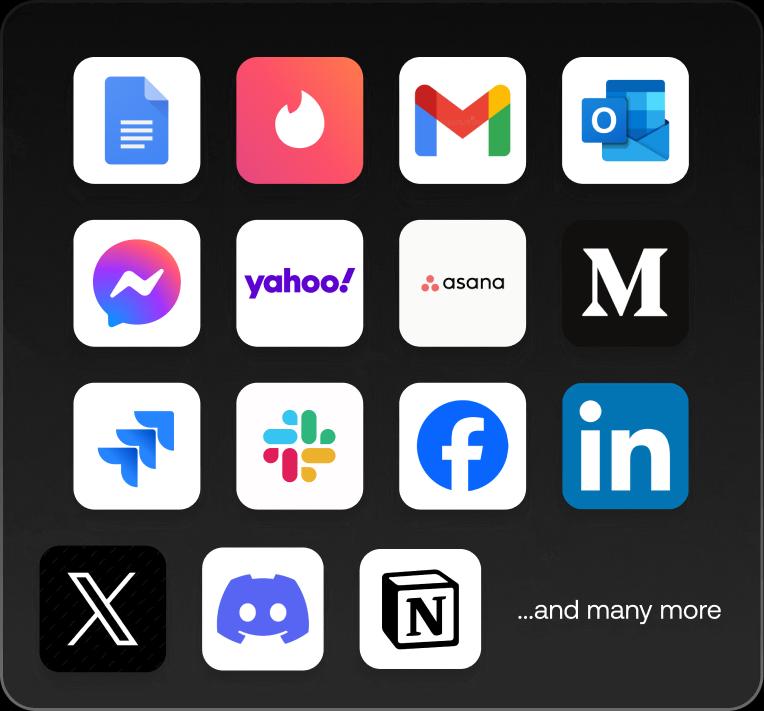


 Engagement
Engagement
Team CompositionANDROID
OS/MacOS SDET TEAM
ANDROID
DEVELOPMENT TEAM
2developers
OS/MacOS SDET TEAM
(software developers in test)
2in first months, expanding to a total of
4by the end of 2022
4000+Android Development hours
8000+Automation Development hours

Collaboration:
Monosoft SDETs team actively engaged in joint sprint plannings and daily stand-up meetings, fostering a seamless integration of testing processes into Grammarlyʼs development lifecycle to prioritize and plan test coverage for upcoming features and functions.


Solution
Android Keyboard Development
Monosoft developed the Grammarly Keyboard for Android devices, ensuring seamless features integration and extreme responsiveness across a diverse range of devices. Our focus was on creating native mobile user experience around the vast range of Grammarly key features:Grammar Suggestions
Grammar Suggestions
Feature aimed at enhancing users' writing accuracy by identifying and correcting grammatical errors in real-time.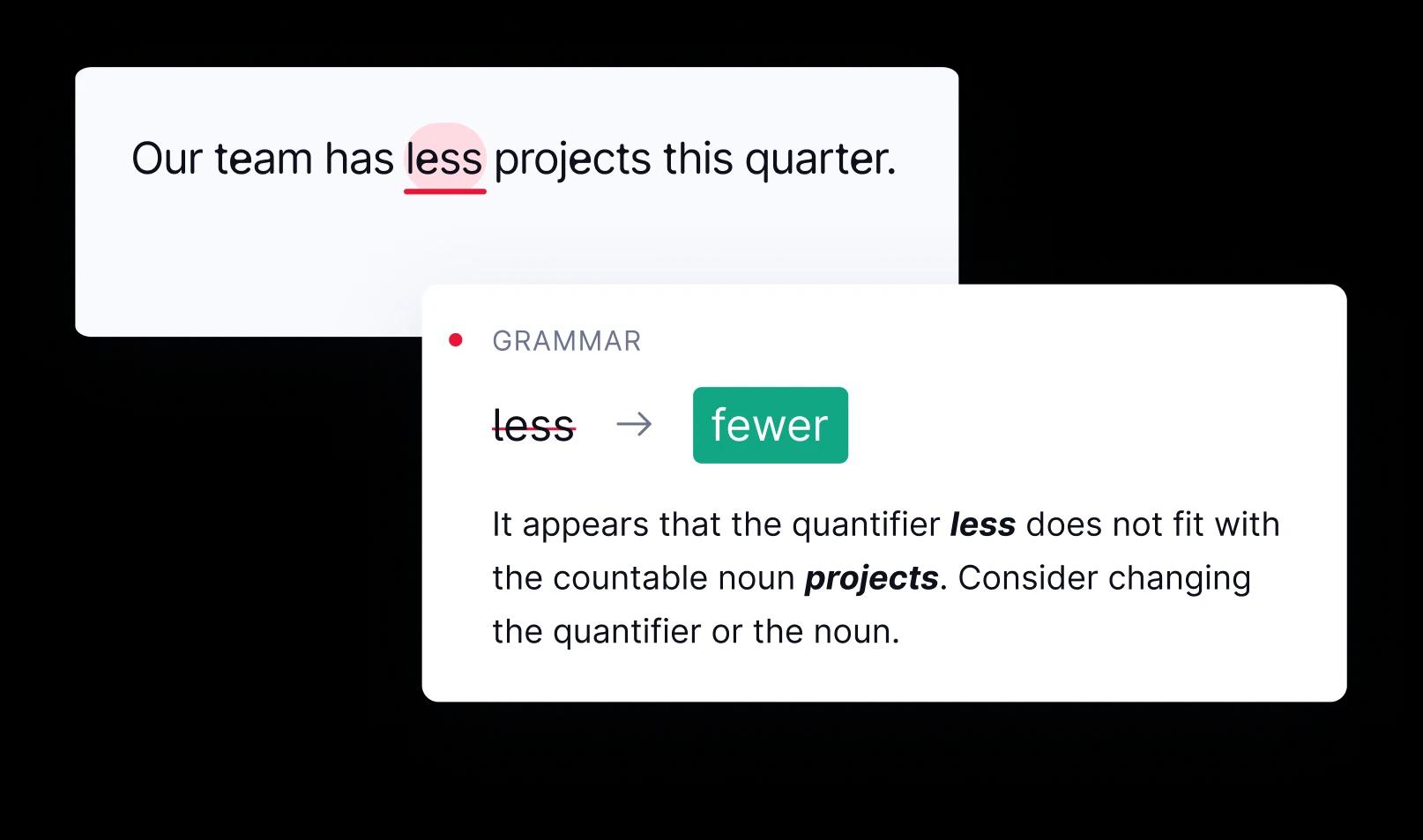
Tone Suggestion
Tone Suggestion
Analyzes the tone of the text, providing feedback on whether the content conveyed a formal, informal, confident, or neutral tone.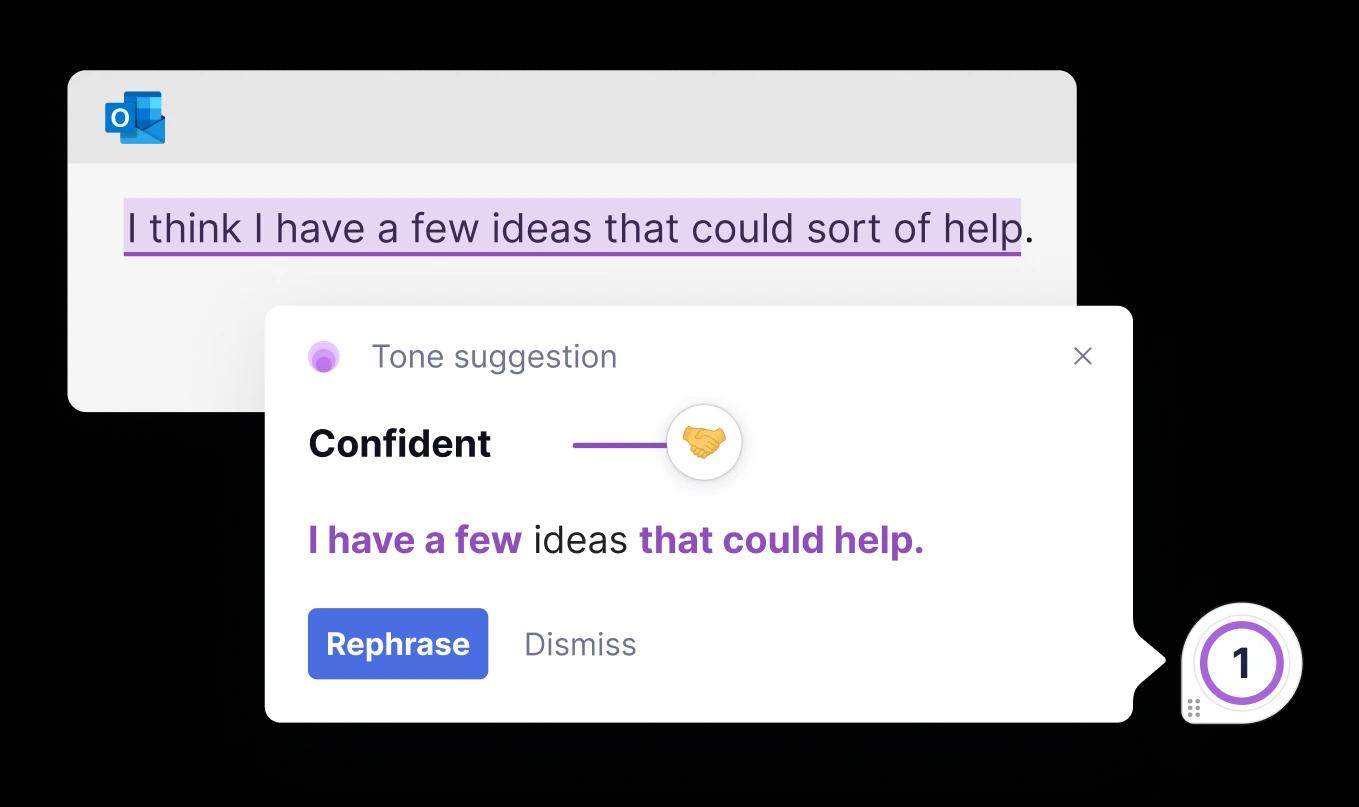
Vocabulary Enhancement
Vocabulary Enhancement
Suggests alternative words and phrases, enriching users' writing by offering diverse and contextually appropriate language choices.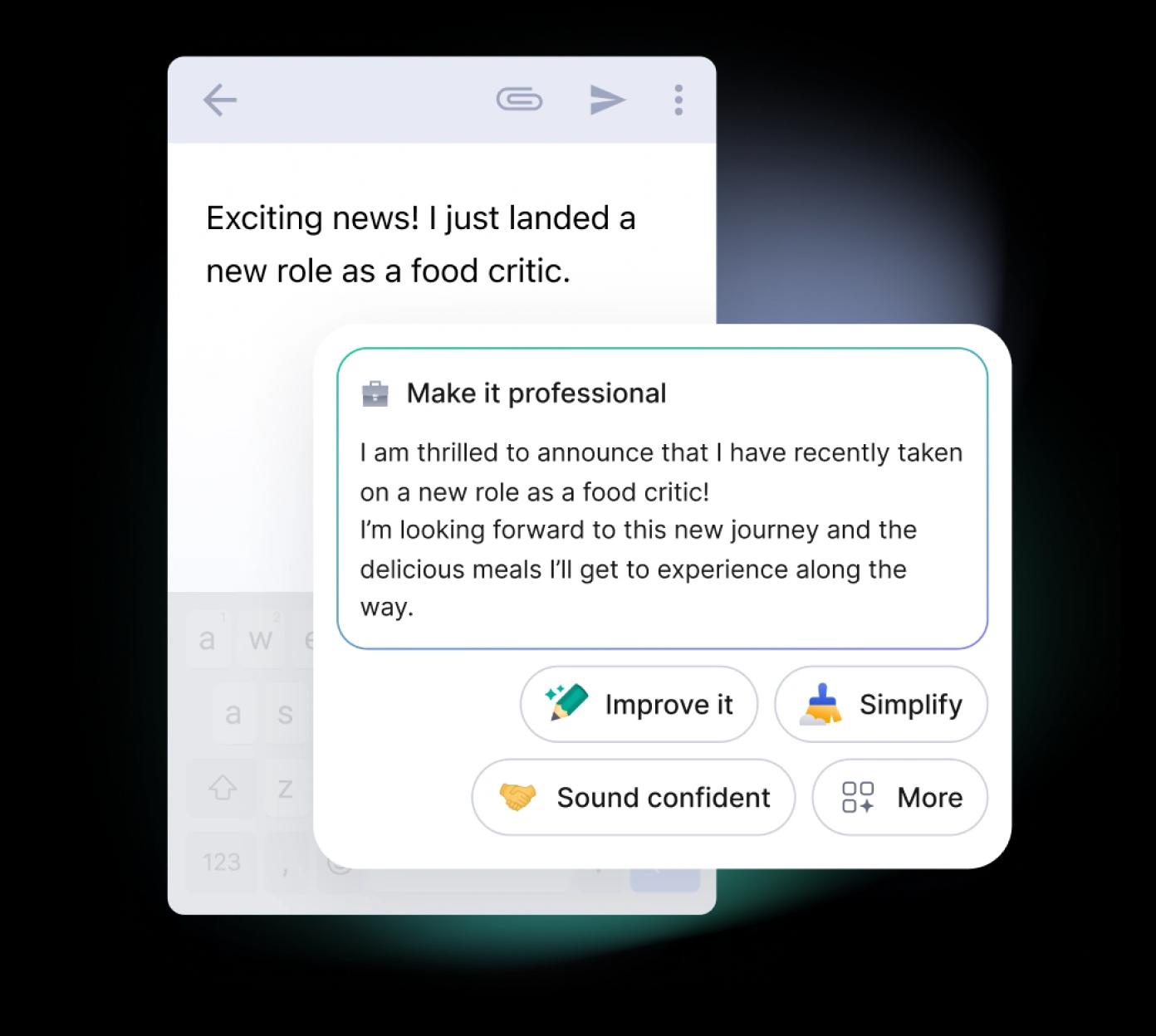
Clarity and Conciseness
Clarity and Conciseness
Aimed to eliminate unnecessary words, phrases, or redundancies for clearer and more concise writing.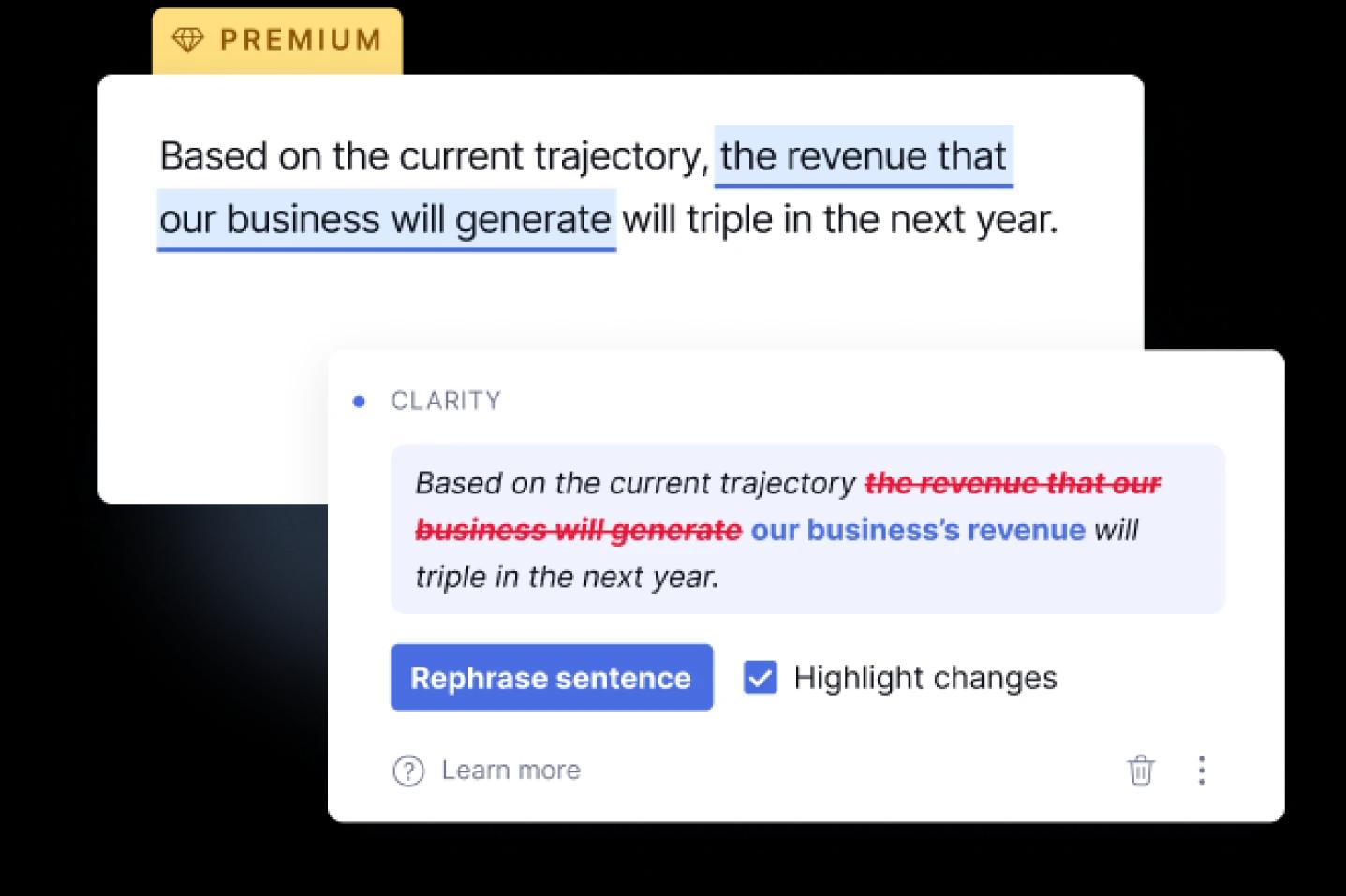
Writing Style Suggestions
Writing Style Suggestions
Provides insights into various writing styles, helping users align their content with specific genres, tones, or intents.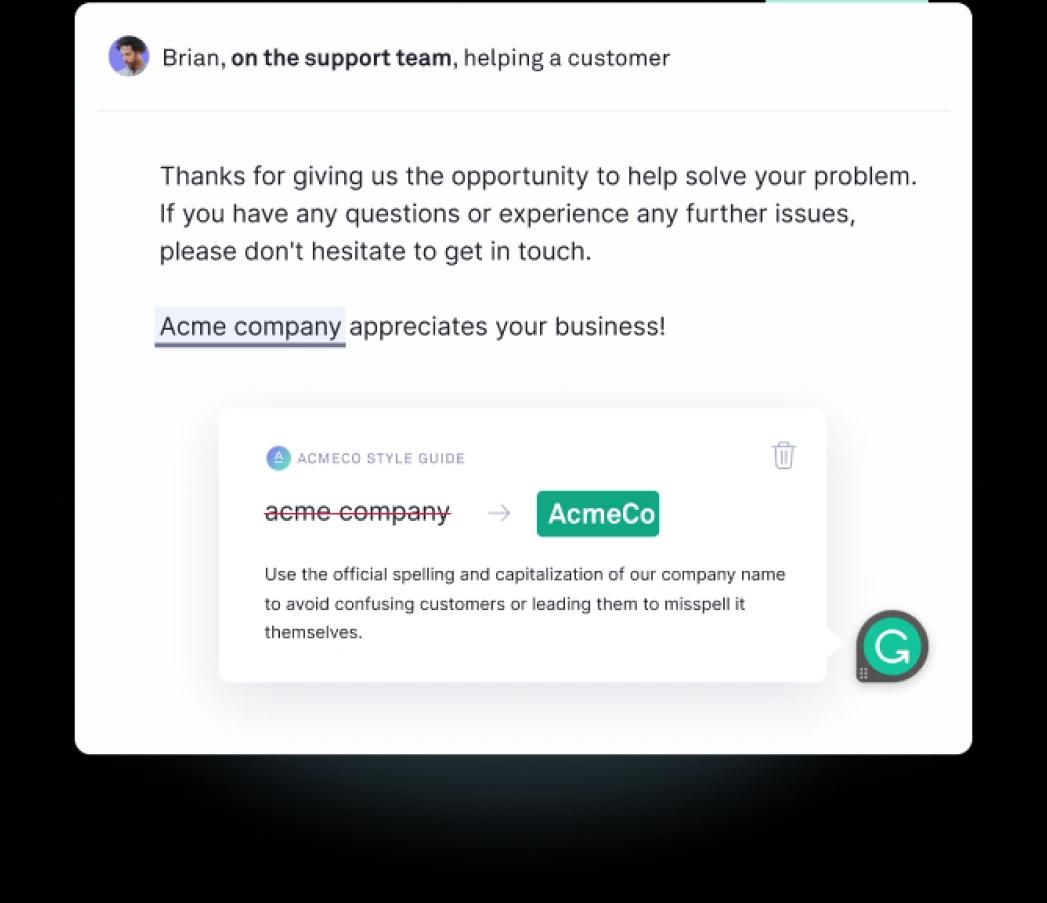
Paywalls Development
Paywalls Development
Focused on integrating payment functionalities into Grammarly's Android applications, offering users premium features and subscription options.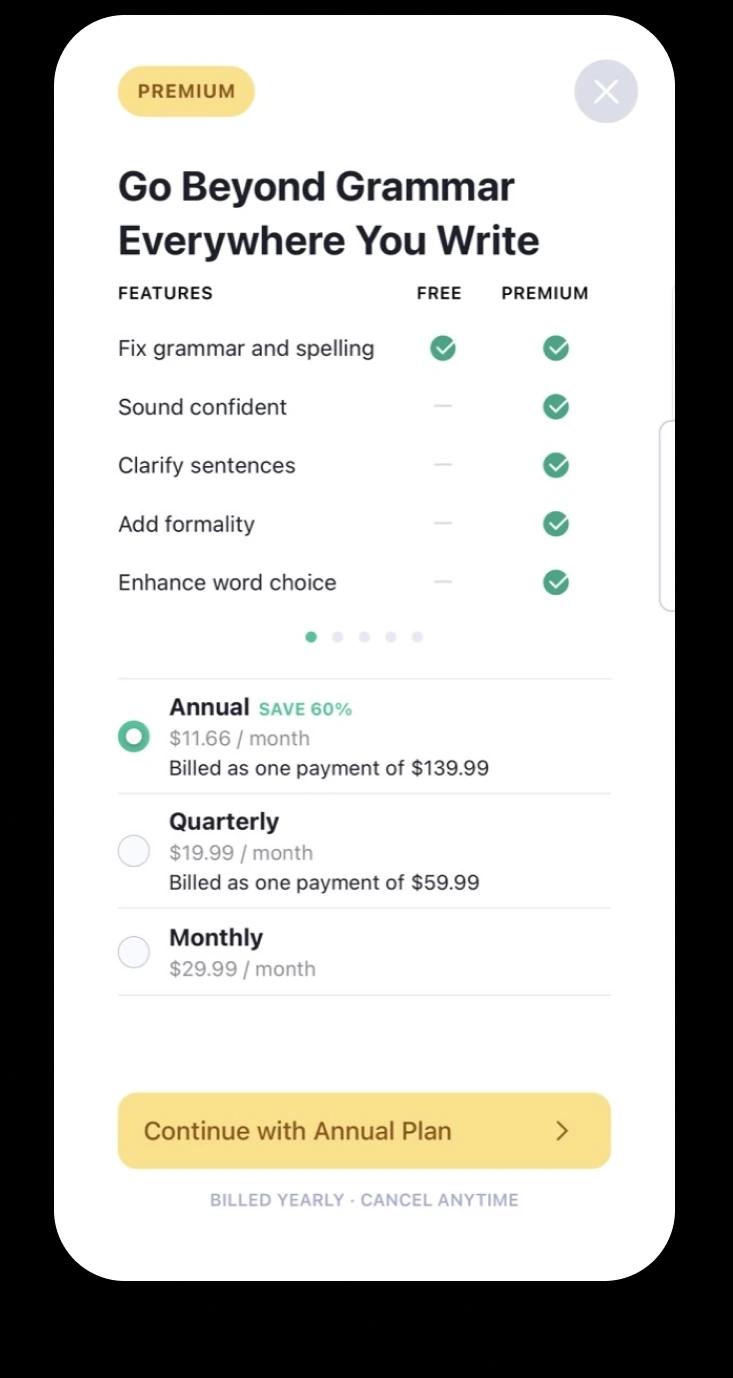
Keyboard Settings Application
Keyboard Settings Application
In addition, we developed a dedicated Keyboard Settings app to provide users with a centralized hub for configuring and controlling personalized settings for a tailored Grammarly Keyboard experience.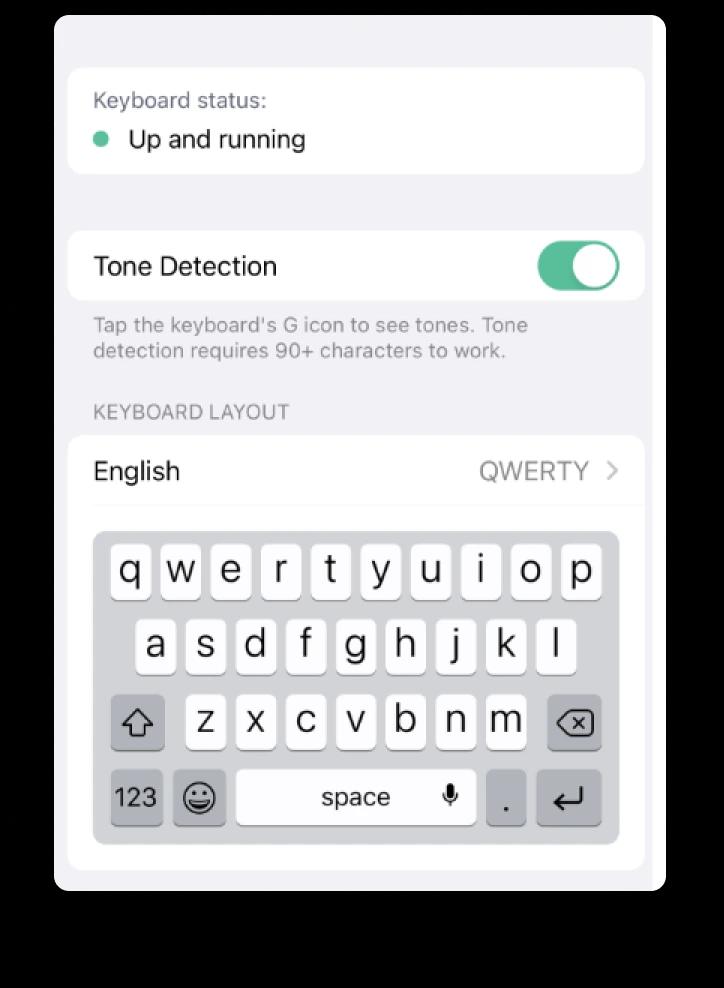
Like what we created
with Grammarly?
Our teams are ready to dive into your project!



Solution
Android Architecture
Monosoft fully integrated the MVVM (Model-View-ViewModel) architecture into Grammarlyʼs Android Keyboard to separate concerns for easier code management which played a key role in streamlining code execution and minimizing resource usage.This allowed to significantly improve interface response time and responsiveness across vast range of Android device, ensuring a seamless user experience.

 Solution
Solution
Test Coverage Infrastructure
Shift-left approach
Shift-left approach was chosen to work on Grammarly test coverage. It involves moving test creation process traditionally performed later in the development lifecycle to the initial stages of the software development.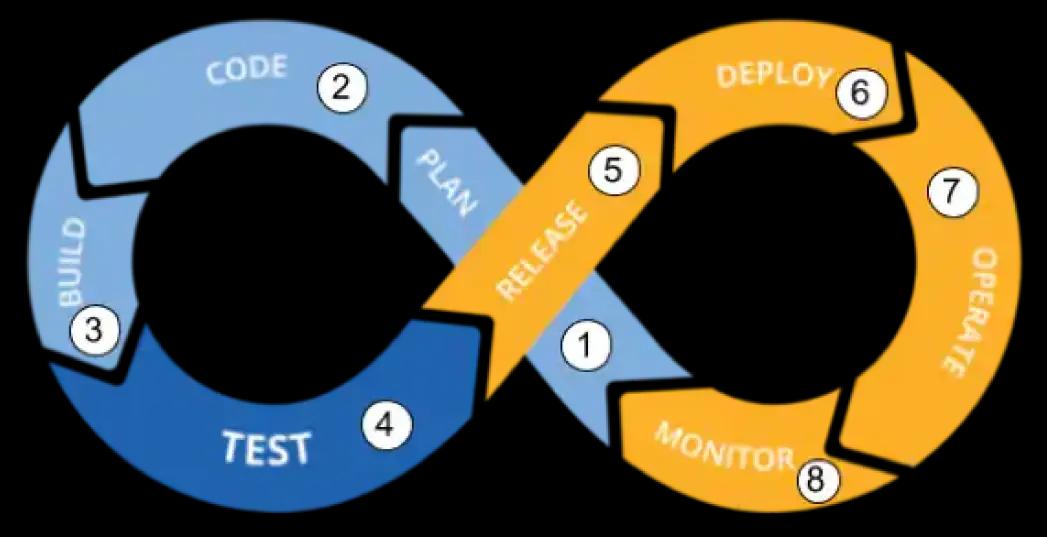
It assured a possibility of:
Innovative Linguistic Testing
Innovative Linguistic Testing:
Our SDET team devised an experimental testing approach, creating a set of comprehensive test cases that simulated real-world linguistic data from most popular applications.This ensured Grammarlyʼs features are fully tested in language contexts.
Early Testing Integration
Early Testing Integration:
We introduced a pivotal policy shift by integrating testing processes at the early stages of development to ensure early issue identification.As a result, we minimized the resources required for bug fixing and maintenance.
Continuous Integration (CI) and Automation
Continuous Integration (CI) and Automation:
Monosoft established robust CI/CD pipelines with innovative automated testing scripts for the continuous integration of code changes.
Automated Unit Testing
Automated Unit Testing:
We developed a suite of automated unit tests for each individual component of the application, which ran on a set of host-apps to automatically test all possible usage scenarios.This process ensured performance validation at each stage of the feature development.

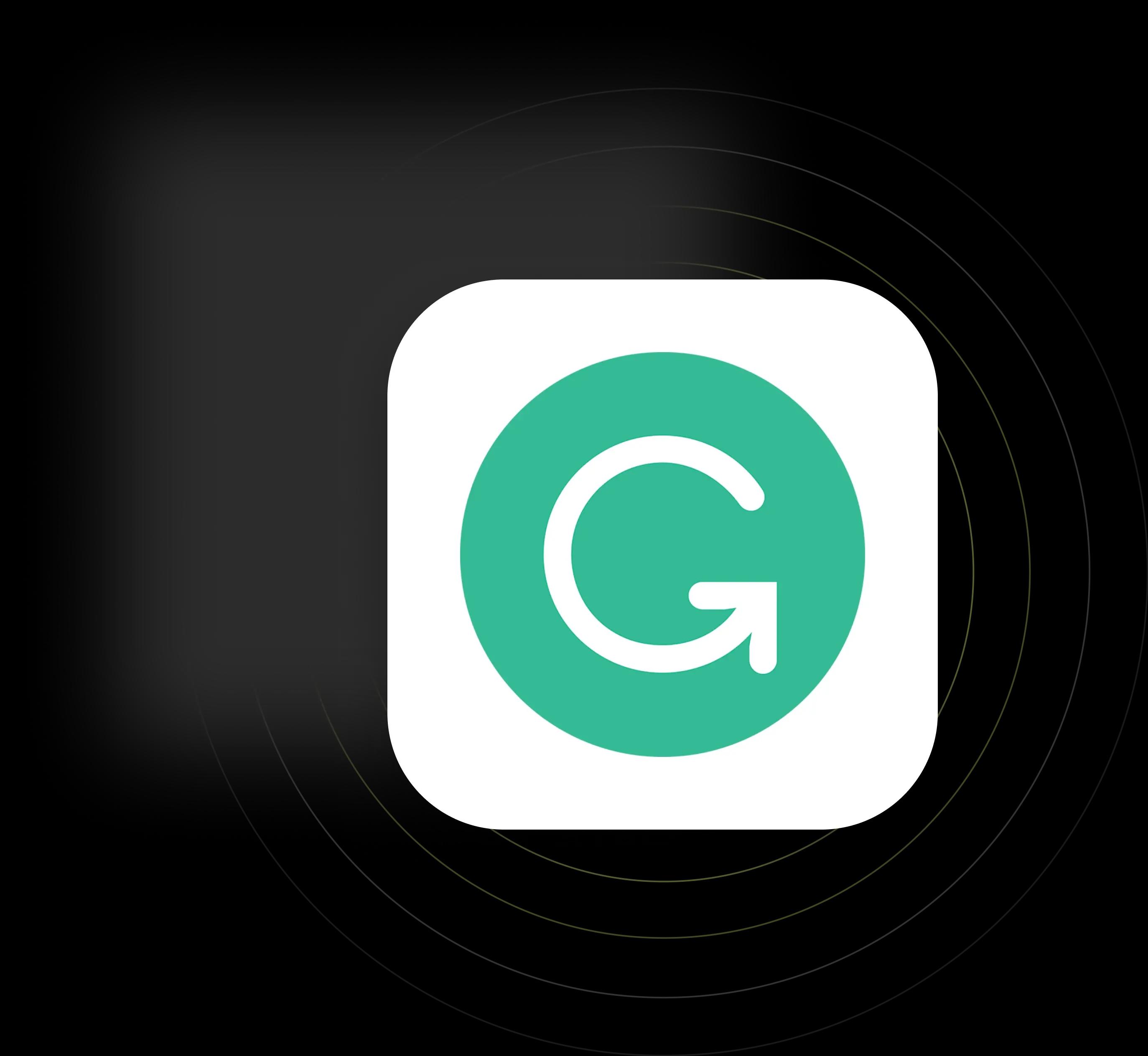
Results and Impact
Measurable Impact
5M+
User Base Expansion Reached
Introducing The Android Keyboard solution allowed Grammarly to capture Android users with a native application, expanding the overall addressable market.
70%
Test coverage achievedby 30%
Reduced regression timeby 15%
Reduced hot-fixesUnmeasurable Impact
Remarkable Crash Rate Reduction
The focus on performance optimization and the adoption of the MVVM architecture played a pivotal role in eliminating major memory leaks.Paywall Revenue Surge:
Androidʼs paywall integration streamlined subscription management, secure payments, and user-friendly interfaces which led to a revenue boost.FUTUREPROOF GuARANTEED
The robust testing infrastructure, coupled with comprehensive test cases, has established a solid foundation for future feature development.It enables seamless testing process of newly developed features without writing additional tests for each one.
Theyʼre responsive, skilled, and timely. Their high level of communication is also noteworthy. Customers can expect a team of engineers that bring value to their engagements.


